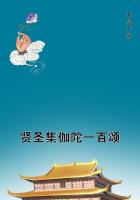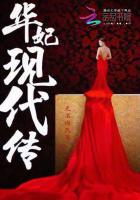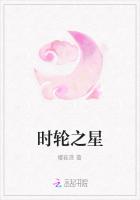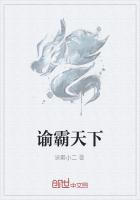'I sit and think of you and of the poems that you will write, and of that strange rainbow crown called fame, until the vision is before me. . . . My pride and my hopes seem altogether merged in you. At my time of life and with so few to love, and with a tendency to body forth images of gladness, you cannot think what joy it is to anticipate. . . .' So wrote the elder woman to the younger with romantic devotion. What Miss Mitford once said of herself was true, hers was the instinct of the bee sucking honey from the hedge flower. Whatever sweetness and happiness there was to find she turned to with unerring directness.
It is to Miss Barrett that she sometimes complains. 'It will help you to understand how impossible it is for me to earn money as I ought to do, when I tell you that this very day I received your dear letter and sixteen others; then my father brought into my room the newspaper to hear the ten or twelve columns of news from India; then I dined and breakfasted in one; then I got up, and by that time there were three parties of people in the garden; eight others arrived soon after. . . . I was forced to leave, being engaged to call on Lady Madeline Palmer. She took me some six miles on foot in Mr. Palmer's beautiful plantations, in search of that exquisite wild-flower the bog-bean, do you know it? most beautiful of flowers, either wild--or, as K. puts it,--"tame." After long search we found the plant not yet in bloom.'
Dr. Mitford weeps over his daughters exhaustion, telling everybody that she is killing herself by her walks and drives. He would like her never to go beyond the garden and beyond reach of the columns of his newspaper. She declares that it is only by getting out and afield that she can bear the strain and the constant alternation of enforced work and anxiety. Nature was, indeed, a second nature to her. Charles Kingsley himself could scarcely write better of the East wind. . . .
'We have had nine weeks of drought and east wind, scarcely a flower to be seen, no verdure in the meadows, no leaves in the hedgerows; if a poor violet or primrose did make its appearance it was scentless. I have not once heard my aversion the cuckoo. . . and in this place, so evidently the rendezvous of swallows, that it takes its name from them, not a swallow has yet appeared. The only time that I have heard the nightingale, I drove, the one mild day we have had, to a wood where I used to find the woodsorrel in beds; only two blossoms of that could be found, but a whole chorus of nightingales saluted me the moment I drove into the wood.'
There is something of Madame de Sevigne in her vivid realisation of natural things.
She nursed her father through a long and trying illness, and when he died found herself alone in the world with impaired health and very little besides her pension from the Civil List to live upon. Dr.
Mitford left 1000 pounds worth of debts, which this honourable woman then and there set to work to try and pay. So much courage and devotion touched the hearts of her many friends and readers, and this sum was actually subscribed by them. Queens, archbishops, dukes, and marquises subscribe to the testimonial, so do the literary ladies, Mesdames Bailey, Edgeworth, Trollope; Mrs. Opie is determined to collect twenty pounds at least, although she justly says she wishes it were for anything but to pay the Doctor's debts.
In 1844 it is delightful to read of a little ease at last in this harassed life; of a school-feast with buns and flags organised by the kind lady, the children riding in waggons decked with laurel, Miss Mitford leading the way, followed by eight or ten neighbouring carriages, and the whole party waiting in Swallowfield Lane to see the Queen and Prince Albert returning from their visit to the Duke of Wellington. 'Our Duke went to no great expense,' says Miss Mitford. (Dr. Mitford would have certainly disapproved had he been still alive.) One strip of carpet the Duke did buy, the rest of the furniture he hired in Reading for the week. The ringers, after being hard at work for four hours, sent a can to the house to ask for some beer, and the can was sent back empty.
It was towards the end of her life that Miss Mitford left Three Mile Cross and came to Swallowfield to stay altogether. 'The poor cottage was tumbling around us, and if we had stayed much longer we should have been buried in the ruins,' she says; 'there I had toiled and striven and tasted as bitterly of bitter anxiety, of fear and hope, as often falls to the lot of women.' Then comes a charming deion of the three miles of straight and dusty road. 'I walked from one cottage to the other on an autumn evening when the vagrant birds, whose habit of assembling there for their annual departure, gives, I suppose, its name of Swallowfield to the village, were circling over my head, and I repeated to myself the pathetic lines of Hayley as he saw those same birds gathering upon his roof during his last illness:--
'"Ye gentle birds, that perch aloof, And smooth your pinions on my roof. . .
'"Prepare for your departure hence Ere winter's angry threats commence;
Like you my soul would smooth her plume For longer flights beyond the tomb.
'"May God by whom is seen and heard Departing men and wandering bird, In mercy mark us for His own And guide us to the land unknown!"'
Thoughts soothing and tender came with those touching lines, and gayer images followed. . . .
It is from Swallowfield that she writes: 'I have fell this blessing of being able to respond to new friendships very strongly lately, for I have lost many old and valued connections during this trying spring. I thank God far more earnestly for such blessings than for my daily bread, for friendship is the bread of the heart.'
It was late in life to make such warm new ties as those which followed her removal from Three Mile Cross; but some of the most cordial friendships of her life date from this time. Mr. James Payn and Mr. Fields she loved with some real motherly feeling, and Lady Russell who lived at the Hall became her tender and devoted friend.

